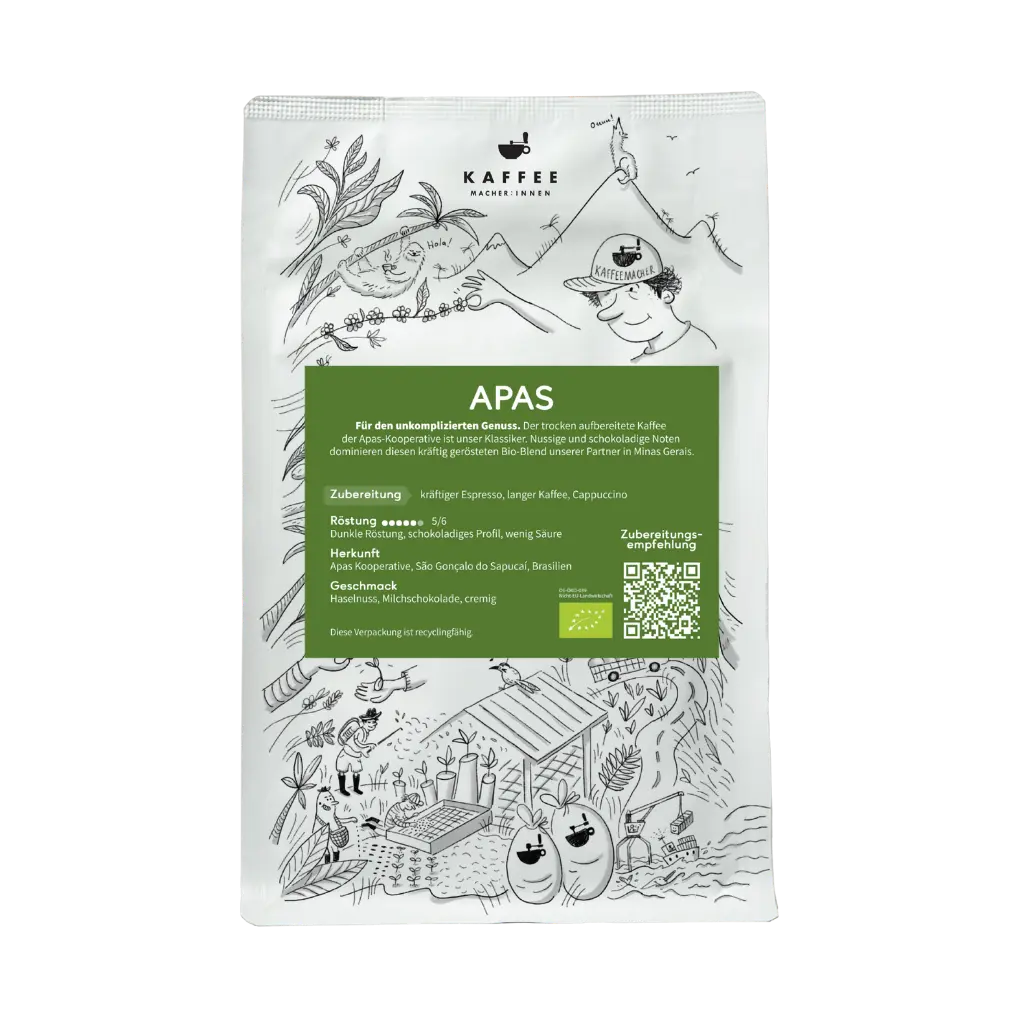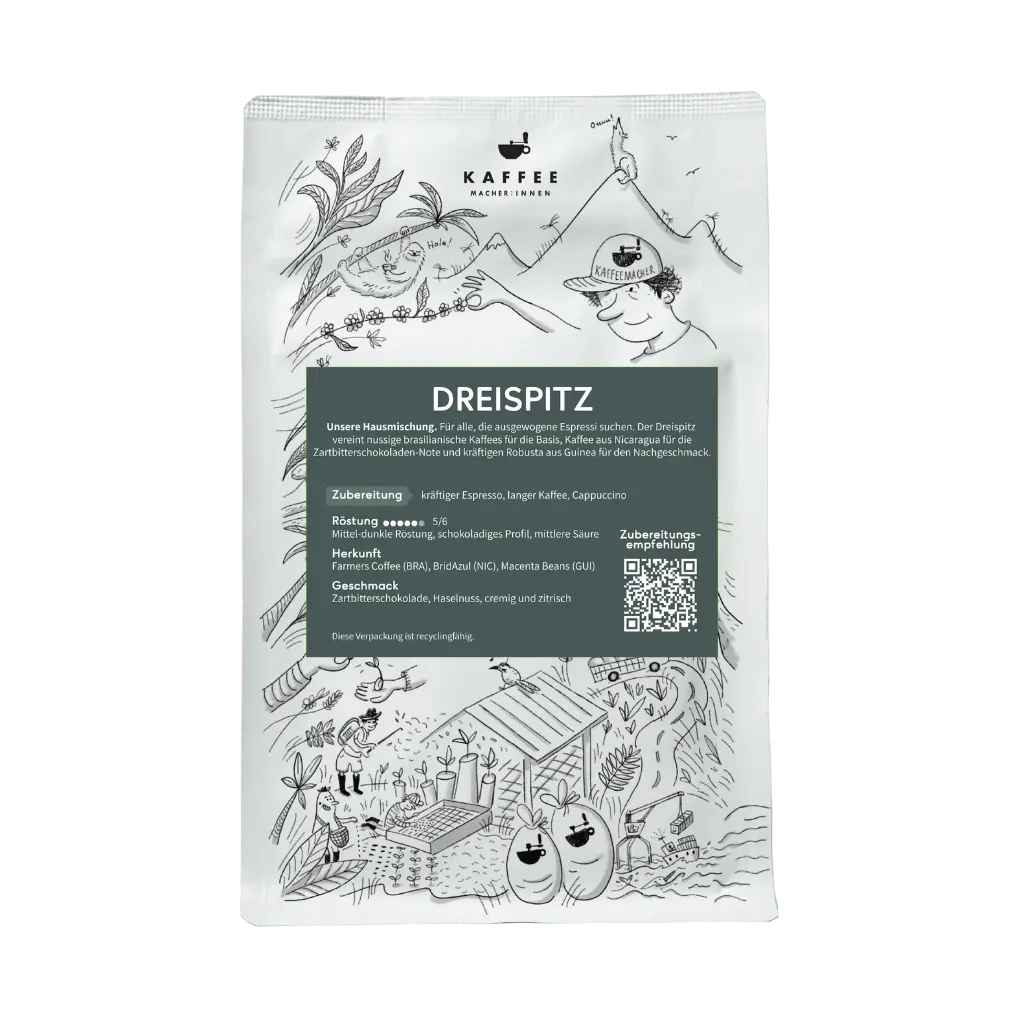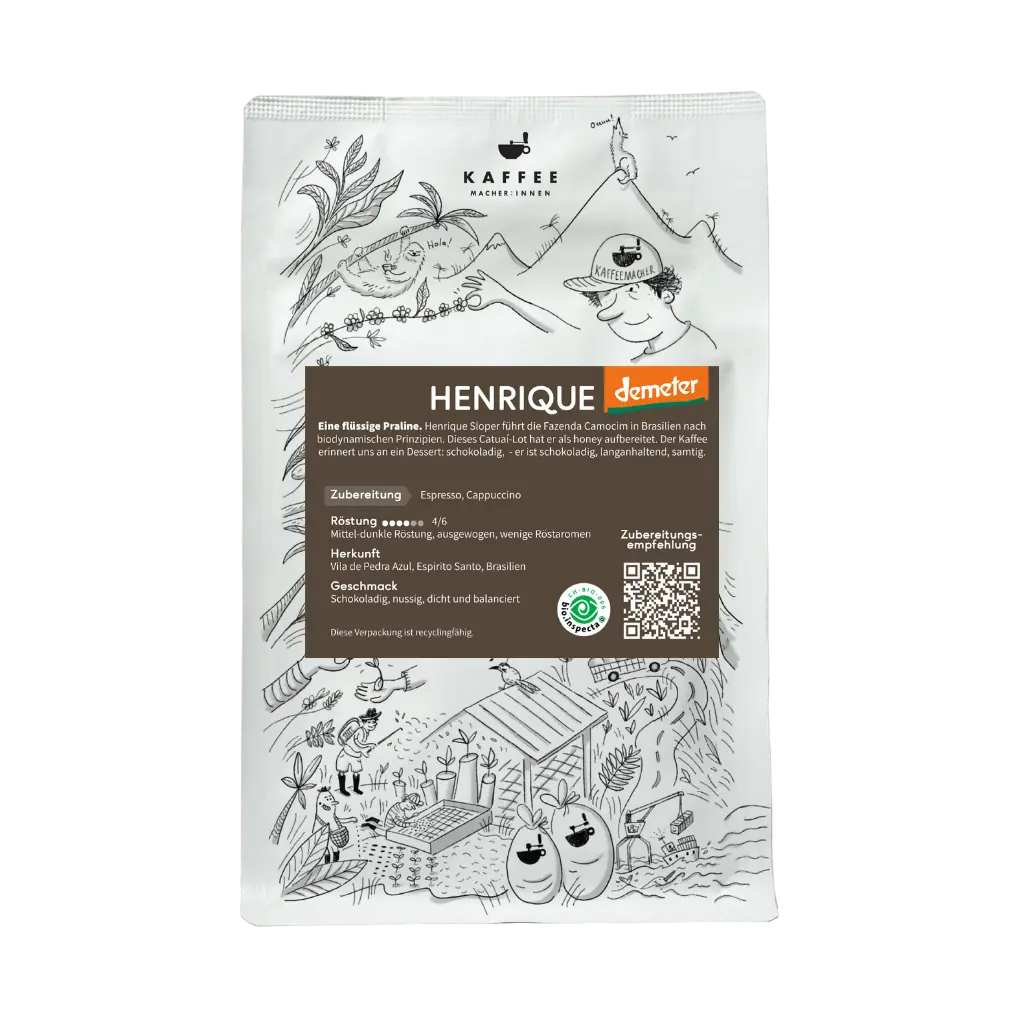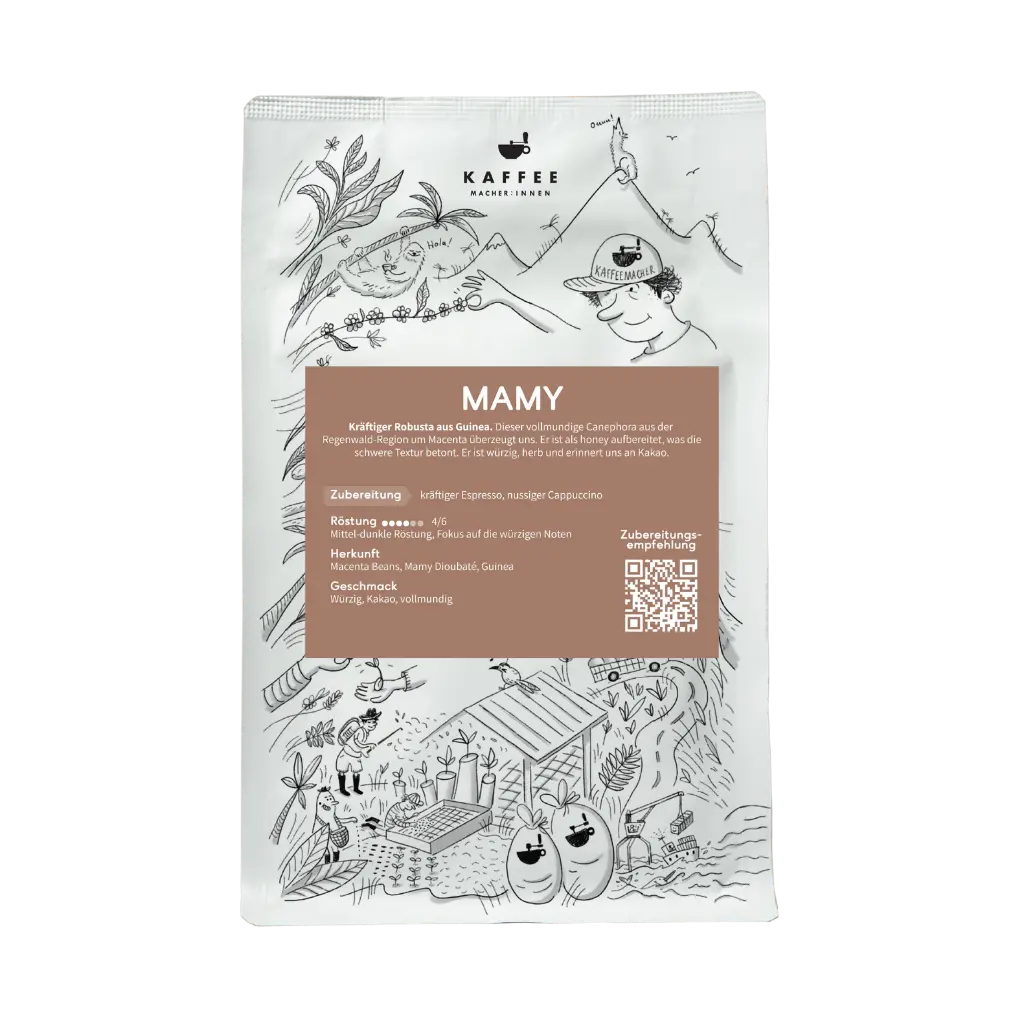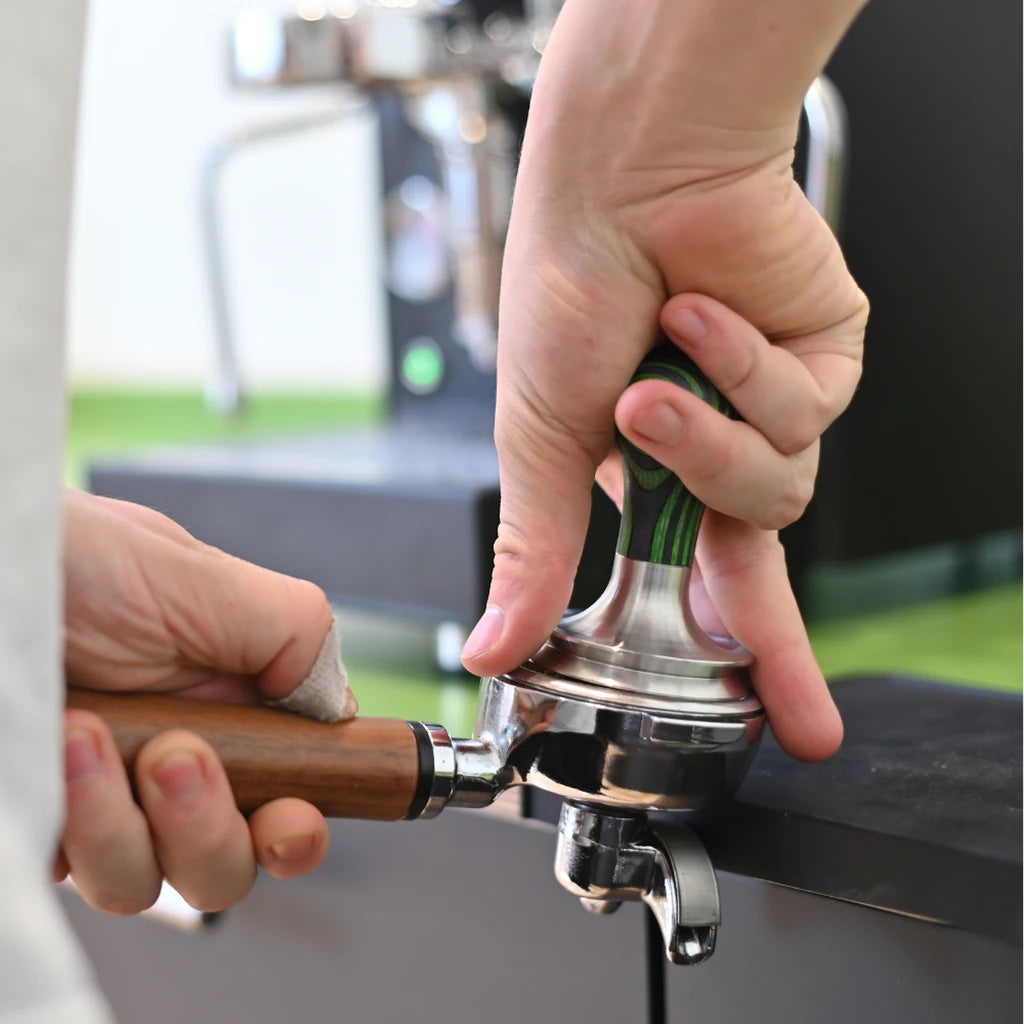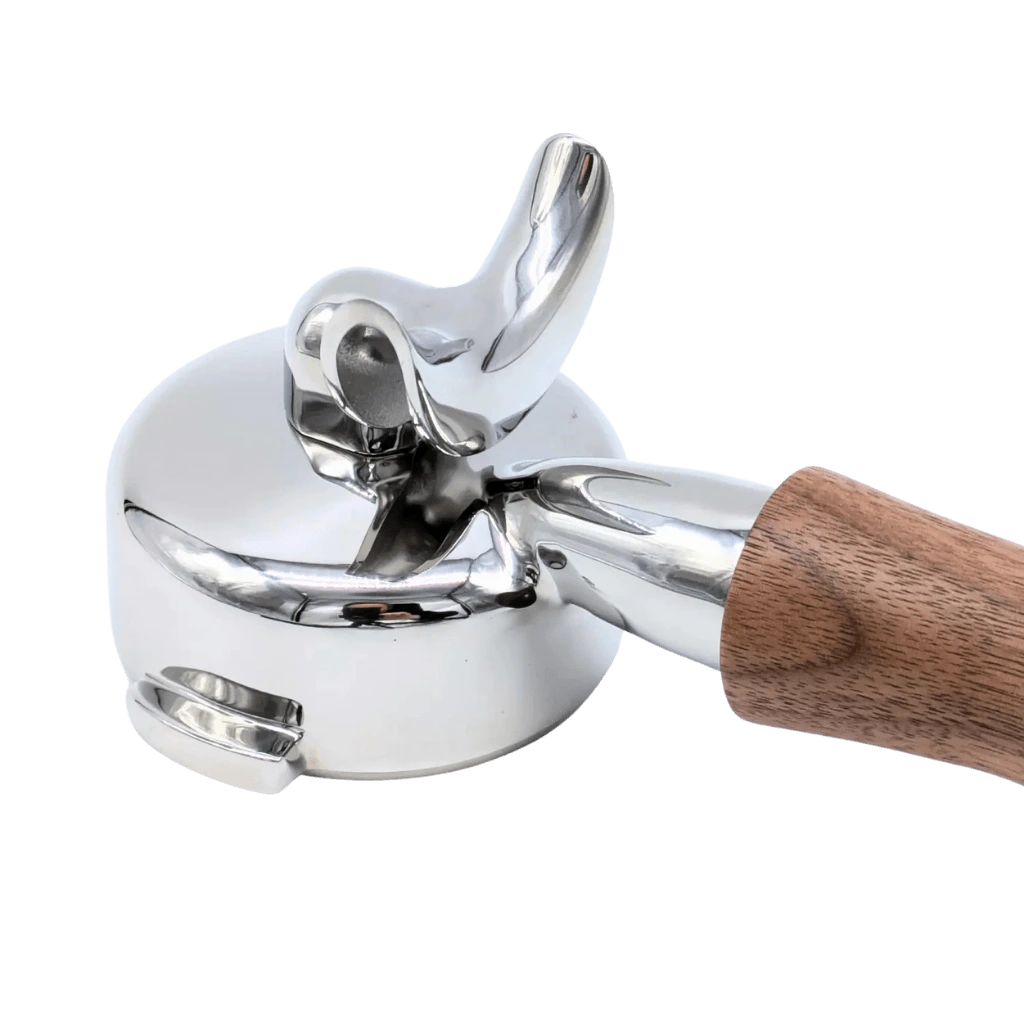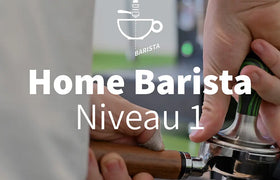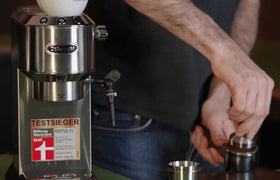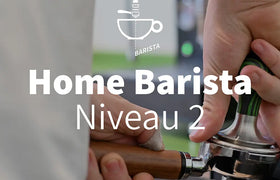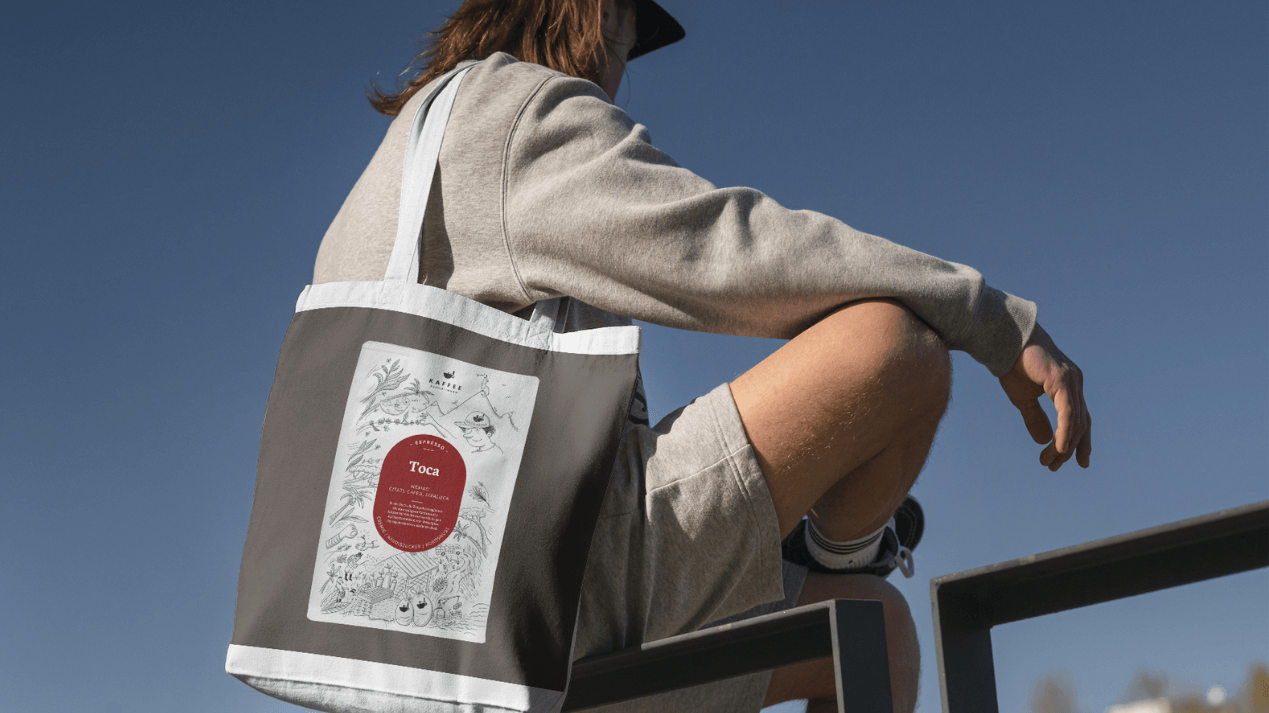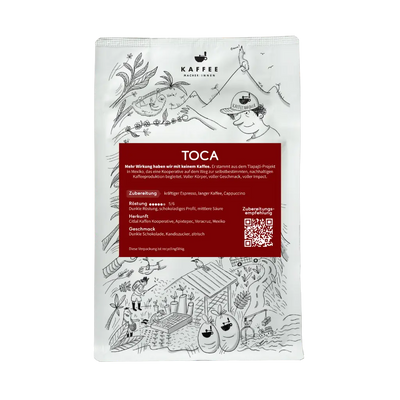Our Toca coffee is the first coffee from our project to promote regenerative coffee production in Veracruz, Mexico, which we run together with Ensambles as our implementation partner. A lot has changed on the ground in recent months: Producers have left the newly established cooperative, a new start has taken place, new buyers have emerged, and we're asking ourselves: are roasters actually actively involved in development cooperation?
What is the Toca Project?

At the end of the last online update with the Ensambles project group in Mexico, Miguel, who accompanies the Toca project as coordinator, said:
Caminante, no hay camino, se hace camino al andar . Meaningful from the original attributed to Franz Kafka: Paths are created by walking them.
These were the final words that would stay with me for a long time. They summed up the past few months, in which the local project team led by Lorena, Miguel, and Gibran had to continually find new paths, solutions, and new producers. The cooperative, founded in 2022, has partially dissolved, new producers have joined, and old wounds have been reopened.
What happened?
In the summer of 2019, we held our first workshop with ensembles and discussed the common goal of developing a model approach to support coffee producers in their transition from conventional methods to regenerative practices.
The project was launched in Ixpaluca , a small community south of Córdoba, Veracruz, in the fall of 2021. Lorena, who works in the field every day for ensembles and the project, began visiting the producers, providing advice, and training where necessary. She explained the project and quickly gained their trust.

The valley around Ixpaluca is fertile and is characterized by coffee and corn production.
Twenty producers expressed interest in participating in this new approach. They brought their samples, Lorena and the on-site team provided feedback and recommendations, and expectations were high on both sides.
Ensambles helped the interested producers establish a cooperative. After some initial difficulties and a vote on who would lead the cooperative, the newly created cooperative, Citlal Cafen, was founded and began selling the coffee.
The first 40 bags of green coffee arrived in Europe in the summer of 2022. Ensembles sent the coffee to us, and we conducted the initial tests. Since late last summer, Toca has been available in our store and is the standard espresso in our Café Frühling.
Then, in October, we visited Ixpaluca. Nervousness was high in the village, as our visit had been announced well in advance and was much more than just a meeting. As a coffee roaster, we have committed ourselves to supporting and accompanying a newly established cooperative on its journey toward regenerative agriculture and organic certification. Ensambles is our local implementation partner and exports the coffee.

From left to right: Philipp, Patrizio (Balloon Coffee Roasters), Lorena, Gibran, Michel
During the ceremony, I was asked to present the project again and talk about our work to the village community. I'm used to such situations, and yet I still sensed more tension in the air than usual.
Expectations were high because new buyers kept appearing in the Ixpaluca area, making big promises and raising hopes of direct market access and better prices for the coffee they sold. Most of them didn't follow through on their promises or left after a year. Given these circumstances, our visit was more than just an introduction; it was also a way to test whether we were serious.
Year two begins
At the meeting itself, several producers asked me how much we would pay for the coffee. Prices are a sensitive topic, and it would be uncomfortable for everyone involved to set the price in such a situation. Furthermore, Ensambles, as our local partner, purchases the coffee, adds the project costs to it, and sells it to us. So, the price negotiations are ongoing between Ensambles and the cooperative.
The price paid by Ensambles in the first year was 20% above the local market. In the second year, Ensambles offered 36% more than the local market, resulting in the same price per kilogram as the previous year: USD 5.72/kg of green coffee directly to the producers.
The cooperative itself was doing its own math during this time. Some representatives felt that Ensambles' price was too low and sought alternative buyers. A new buyer just appeared in the region, offering a significantly higher price. Nearly ten of the twenty producers left the newly formed cooperative and wanted to work with the new buyer—a decision that turned out to be a mistake.

On the finca of Don Adrian, who has always focused on high soil quality.
When the season finally began, seven of the original 20 producers were still involved in the Toca project. Lorena, as before, was with the producers every day, held workshops, and was and remains our link to the community.
Lorena and Miguel visited other communities around Ixpaluca with Don Roque and Yazmani, two veteran producers of the Toca project. They managed to find producers in nine additional communities and hamlets who both identified with the project and were willing to adapt their production methods.
In total, 100 bags of Toca coffee, each weighing 69 kg, were collected. The producers were trained by the on-site team on how to wash, pulp, and ferment the coffee in small batches on their own farm to achieve the desired quality.
Lorena describes the day when all the old and new producers of the Toca project brought their coffee together to the dry mill in Zongolica, the small town where the laboratory is located, as a celebratory moment.

Lorena at one of her workshops with producers in the Ixpaluca region.
Old wounds, new suffering
During our visit in October, we were told how often producers in this region were ripped off.
Mistrust became a form of self-protection and high demands became a basis for negotiation.
After the official meeting, we were taken to the village gymnasium to discuss a prize again. We sat in the hot seat, flanked by Miguel, who moderated the meeting with aplomb. It wasn't the right time to set prizes. Every prize was the wrong prize at that time.
Some producers left the meeting, noting that it would be worth waiting and putting some trust in the new buyers. Others were torn, as other representatives of the cooperative wanted to reach a deal.
The meeting ended with a declaration of intent that we as buyers, Ensambles as a local consultant, and the cooperative itself, must come to terms with a price that hurts everyone a little, but is actually a good thing.

Miguel, who leads Ensambles' projects throughout Mexico.
At the beginning of 2023, Lorena received news that more than half of the cooperative had decided to go along with the new buyer in the region. They would withdraw from the Toca project and leave the cooperative. Their hopes now lay with the new buyer, who could offer a higher price than we did.
In June 2023, I received the news that the buyer had not purchased the coffee after all and that the thirteen former cooperative members had to sell their coffee on the local market.
This news saddened me. The miserable fate of buyers breaking their promises, which has now led some producers to adopt more harsh and distrustful attitudes, has befallen them again.
Our role as coffee roasters. Are we "development aid workers?"
As a coffee roaster, we are the link between the diverse smallholder farmers in the Southern Hemisphere and an equally diverse customer base in the DACH region. More on this balancing act in the next chapter. The work of sourcing green coffee goes into such depth that we can bring about change if we engage intensively with the people and the place where the coffee comes from.
To initiate change with the Toca project, these are the concrete points:
- To provide access to markets with differentials = higher prices
- Assist producers to adapt coffee production to climate change
- Payment for the green coffee immediately when producers bring their coffee
- In the future, part of it will be pre-financed
- work towards self-sufficient fertilizer production as far as possible in order to become independent of the global nitrogen price, which drives up the price of fertilizer
So how involved are we in “development cooperation”?
This project goes far beyond simply purchasing green coffee. We are making commitments and exposing ourselves in the process.
The region around Ixpaluca is what Mexican officials call a "rural development region." Most people produce corn, some grain, perhaps coffee, keep animals, and live off subsistence farming, as well as subsidies.
The support payments are also popular in Mexico for bringing about positive change with relatively little effort. However, the desired effects are not apparent, and the region remains impoverished. There is no pharmacy in Ixpaluca itself, and it takes several hours to reach the nearest doctor.
As coffee buyers, we often find ourselves in situations where we visit poor areas, spend hours or a few days there, and then leave again.
We come for coffee and leave with memories and images in our heads that depict daily life—one that is different from ours and one that we try to understand.

The farms in the Sierra de Zongolica are small and most producers cannot make a living from coffee production.
As soon as we become active as buyers in this region, we are inevitably connected to the people. The primary factor in bringing about positive and progressive change is the coffee price, which should be so attractive that we can partially provide a financial basis, allowing producers to freely decide where and how to grow and invest.
In other cases, such as on our own farm in Nicaragua, we are building a kitchen and a house for the family living on the farm. As owners of the farm in Nicaragua, we see it as our duty to ensure decent living conditions on the farm. In the case of the Toca project, we are neither the owners nor the direct buyers, but rather the end buyers who offer a project as an invitation to adopt a different agricultural approach and the associated certification, which should open up further new markets for the producers.
As buyers who don't live locally, it's not our role to interfere in local decisions and processes. However, we can extend invitations for alternative paths, which can be accepted or rejected.
The most important factor in driving such a project forward is consistency and proximity. The consistency of Ensambles being on site as an implementation partner. The consistency of us purchasing coffee every year with the intention of increasing this volume. And the proximity provided by Lorena as a village resident.
The coffee balancing act
Coffee roasters inherently walk a tightrope. With one foot, they're involved in small-scale farming in the Southern Hemisphere. With the other, they're in the direct, daily more sophisticated end-consumer market, where short attention spans seem to increase the pressure for ever more compelling promises.
On the one hand, we work on an annual basis, planning from harvest to harvest. On the other hand, we work on an hourly basis, uploading Instagram stories and engaging in direct dialogue with consumers. This contrast is enormous and applies to coffee as a product like no other.

Small-scale farming realities from the southern hemisphere meet daily trends in the end-consumer market.
Roasters who are aware of this situation and want to become active in their own supply chain will quickly find themselves in a similar situation to the one we find ourselves in in the Sierra de Zongolica. We see the situation as it is.
But we also recognize that it's not our responsibility to try to solve structural problems. However, we understand that by purchasing coffee, we are operating a kind of extraction economy: Ixpaluca produces, and we buy. Awareness of this complex situation doesn't absolve us of responsibility, but it also doesn't make us liable if we do nothing.
However, there are opportunities that a coffee roaster can take advantage of : it can connect with a place and its people.
It can build relationships, be a reliable partner, and a translator for a distant market. It can open a window to a market and promote a brand outward, thus bringing other potential buyers along with it—which is what we did this year with our colleagues at Black Hen and the Kucha coffee shop .
So, if we now make supply chains more human and treat each other as people within this chain, what's the argument against further enhancing the pure extraction of coffee beans with accompanying measures that could make life a little better?
As long as the interpretive authority and decision-making power are symmetrical, nothing stands in the way of a common approach to improving the status quo.
And so we're in close contact with our partners in Mexico. The updates are encouraging; sometimes they're worrying, then exuberantly joyful, then pragmatic, then promising again. Working from Central Europe with coffee producers is a long-distance relationship. It requires time, consistency, and a great deal of trust, which only develops when we both do our part and engage in honest communication. And that's what energizes us in our work.
Vámonos!
Overview of the status quo and next steps

For coffee:




